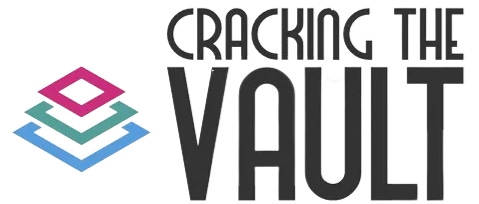Carlyle Dropping From Bidding for Thyssenkrupp's Naval Division
Cracking the Vault: In-depth article
Good morning and happy Wednesday.
TL;DR: Carlyle's withdrawal from the bidding process for Thyssenkrupp's naval division, TKMS, poses significant challenges to Thyssenkrupp's restructuring efforts and highlights the complexities of consolidating Germany's defense industry.
Who: Carlyle has exited the bidding process to acquire Thyssenkrupp Marine Systems (TKMS), the naval shipbuilding arm of German conglomerate Thyssenkrupp.
What: The withdrawal hinders Thyssenkrupp's plans to divest TKMS as part of its broader restructuring strategy, raising questions about the future direction of the naval division.
Why: While official reasons remain undisclosed, potential factors may include governmental resistance, strategic misalignment, and concerns over the risks associated with the defense industry.
Let’s jump in!
Carlyle's Exit from Thyssenkrupp Marine Systems Bidding Process
Carlyle's Withdrawal: A Setback for Thyssenkrupp's Restructuring
Carlyle has officially withdrawn from the bidding process to acquire Thyssenkrupp Marine Systems (TKMS), delivering a significant blow to Thyssenkrupp's ongoing efforts to streamline its operations. The exit of such a prominent investor disrupts Thyssenkrupp's immediate plans and underscores the challenges inherent in divesting a strategic asset like TKMS.
So what does this mean for Thyssenkrupp? The company now faces the task of reassessing its strategy for TKMS without the backing of a major private equity firm. This development may delay Thyssenkrupp's restructuring timeline and impact its financial goals, as proceeds from the sale were likely earmarked for debt reduction and investment in core businesses.
The Strategic Implications for Thyssenkrupp
Thyssenkrupp has been seeking to offload TKMS to focus on its core operations, such as materials trading and automotive components. TKMS, while profitable, operates in a specialized market with high capital demands and long project cycles.
Why is this important? The inability to sell TKMS complicates Thyssenkrupp's restructuring plans. Holding onto the naval division may divert resources and management attention from core areas. Moreover, prolonged uncertainty can affect employee morale and hinder long-term strategic planning within TKMS.
Possible Reasons Behind Carlyle's Withdrawal
While neither party has disclosed specific reasons, several factors may have influenced Carlyle's decision:
Governmental Resistance: Given TKMS's role in national security, the German government may have been reluctant to approve a foreign takeover, even with safeguards like state involvement.
Strategic Misalignment: Carlyle may have determined that the investment did not align with its portfolio strategy or risk appetite, especially given the complexities of the defense sector.
Financial Viability: The capital-intensive nature of naval shipbuilding and potential for cost overruns may have raised concerns about return on investment.
So what can we learn from this? Carlyle's withdrawal highlights the intricate balance between attracting foreign investment and protecting national interests, a common challenge in the defense industry.
Impact on Germany's Defense Industry Consolidation
Carlyle's exit underscores broader challenges in consolidating Germany's defense industry. With increasing geopolitical tensions, there's a push for stronger, more unified defense capabilities within Europe.
Why does this matter? The consolidation of defense assets is crucial for competitiveness and innovation. However, foreign investment in this sector is often met with scrutiny due to national security concerns. This situation may prompt the German government to reconsider its stance on foreign involvement or accelerate efforts for domestic consolidation.
Thyssenkrupp's Alternative Strategies
In response to the setback, Thyssenkrupp has stated it will:
Intensify Efforts for Independence: Explore spinning off TKMS through an IPO, allowing the division to operate autonomously.
Seek Industrial Partnerships: Remain open to alliances with other industry players that could offer strategic synergies.
Continue Government Discussions: Engage with the German government about possible participation or support.
So what's the significance of these steps? Each option offers potential benefits but also comes with challenges. An IPO could unlock value but requires favorable market conditions. Industrial partnerships might bring expertise and resources but need alignment in vision and operations. Government involvement could provide stability but may limit flexibility.
The Road Ahead for TKMS
Operating independently could position TKMS to better capitalize on global defense spending increases, especially amid rising geopolitical tensions. The division has shown strong operational performance, reporting increased profits, which could make it an attractive standalone entity.
Why should we care? The success of TKMS as an independent company could set a precedent for similar divestitures in the defense sector. It also plays a crucial role in Germany's naval capabilities and, by extension, European defense strength.
Broader Context: Thyssenkrupp's Restructuring Challenges
Carlyle's withdrawal is not an isolated incident but part of a series of hurdles Thyssenkrupp faces in its restructuring journey. The company is also working on a 50:50 steel joint venture with Czech billionaire Daniel Křetínský to strengthen its steel operations.
So what does this tell us? Divesting assets in highly regulated and strategic industries is challenging. Thyssenkrupp's experience reflects the complexities multinational conglomerates face when attempting to streamline operations and focus on core competencies.
Conclusion
Carlyle's exit adds uncertainty to Thyssenkrupp's plans and highlights the difficulties of restructuring in sectors entwined with national interests. As Thyssenkrupp explores alternative paths for TKMS, the decisions made will have significant implications not only for the company but also for Germany's defense industry and its position in the global market.
Until next time, stay curious!





